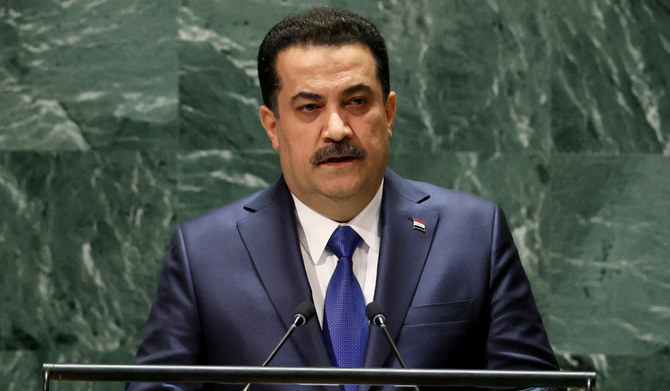
- ARAB NEWS
- 18 Jul 2025

NEW YORK: The Middle East will be at the forefront of “environmental catastrophe” if the international community fails to get back on track with its efforts to curb climate change, Iraq’s prime minister said on Friday.
Mohammed Shia Al-Sudani told the UN General Assembly in New York that his country is already experiencing the detrimental effects of temperature rises, with low waters on the Tigris-Euphrates river system.
“The environmental catastrophe will be more severe for Iraq and the countries of the region, with an unprecedented rise in temperatures, which render normal forms of life extremely difficult, approaching impossible,” he said.
“Our two rivers are exposed to the brunt of the effects of drought resulting from climate change. We have an urgent need to preserve rights to water resources and international river basins.”
A report by Iraq’s Ministry of Water Resources in 2021 warned that the Tigris and Euphrates rivers would dry out completely by 2040 due to the persistence of droughts and declining water levels that are being driven by climate change.
Al-Sudani highlighted Iraq’s efforts to engage with neighboring states to create a regional coordination mechanism for the management of transboundary water systems, and to tackle drought, dust storms and heatwaves.
“We call for the establishment of a regional grouping, which includes the countries of the Gulf shores, from Iraq and Iran, and the member states of the Gulf Cooperation Council — those countries most exposed to rising temperatures,” he said.
“At the national level, we’ve taken necessary steps to reduce emissions and stop burning associated gases and polluting the environment.
“We’ve also initiated several projects in the field of waste recycling and encouraging the trend towards clean energy.”